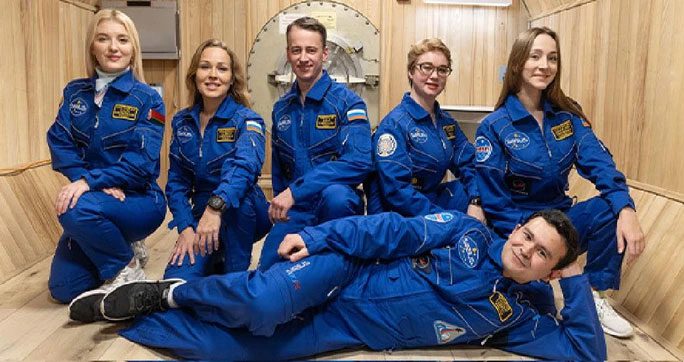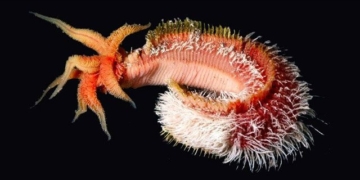According to announcements from Russia, six astronauts participating in the SIRIUS-23 mission will endure isolation for 360 days under conditions simulating a journey into deep space.
This simulation mission is a crucial preparation step for establishing bases beyond Earth, as well as for future missions aimed at sending humans to distant celestial bodies that require long-duration journeys.
The astronauts will also need to complete several important biomedical experiments during their time in isolation and adapt to the differing conditions of the simulated space environment, which has been designed based on the lunar environment.

SIRIUS-23 Crew – (Photo: IBMP)
The SIRIUS-23 mission is sponsored by the Institute of Biomedical Problems (IBMP) of the Russian Academy of Sciences.
This is the fourth phase of previous IBMP isolation experiments, including SIRIUS-17, which lasted 17 days in 2017, followed by SIRIUS-19, which lasted 120 days in 2019.
Another mission, SIRIUS-21, took place in 2021, increasing the total time the crew had to “endure” a secluded space environment to 240 days.
In the latest SIRIUS-23 experiment, the Russian scientists began their isolation on November 14. They will simulate a mission to fly past the Moon to find landing sites, conduct multiple simulated landings for four crew members to perform surface activities, continue flying around the Moon, and carry out activities from the spacecraft…
The spacecraft commander, Yury Sergeevich Chebotarev (Russia), will lead a crew of four other Russians and one Belarusian. Meanwhile, Dr. Anatasia Stepanova from the Colorado School of Mines in Golden (USA), a Russian scientist who participated in SIRIUS-19, will serve as the ground supervisor.
This is the first time the SIRIUS crew has a majority of female astronauts (four members), and it is also the first time the experiment is not co-organized with NASA.
The U.S. space agency is also moving towards its own separate simulation experiment, which will be conducted in Antarctica. The location for Russia’s SIRIUS-23 experiment has not been disclosed.
Both agencies have launched several missions aimed at preparing for ambitious future deep-space explorations, including missions to Mars and even more distant planets. In the nearer term, they hope to establish a lunar base in the coming decades.




















































